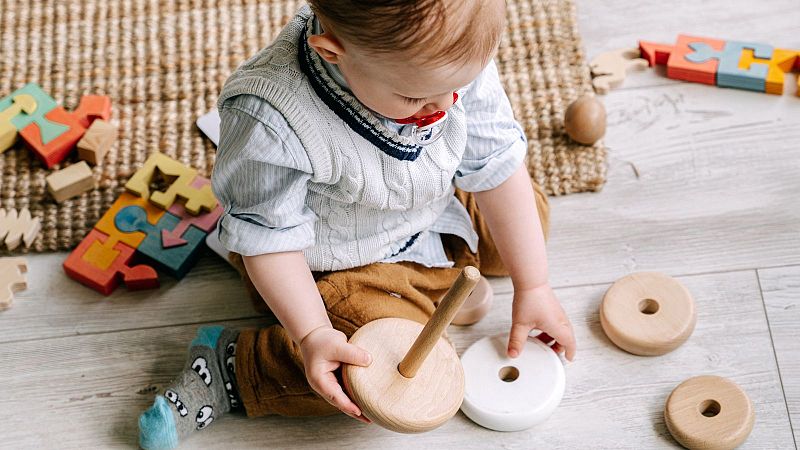Paris could offer new parents anti-pollution baby 'gift bags' to combat 'forever chemicals'

The city of Paris wants new parents to think twice before offering plastic baby items to their newborns and plans to give clean products to them as part of a new environmental health plan.
The plan, which will go to a vote on Tuesday night, is meant to reinforce the city’s efforts to tackle pollution with more comprehensive testing of schools for toxic chemicals and metals such as lead, preventing indoor air pollution, and a new expert committee to evaluate environmental health.
Anne-Claire Boux, Paris’ deputy mayor in charge of health from the Greens party, says the impact of pollution on people’s health is a known societal problem.
"It is now estimated that at least 10 per cent of cancers are linked to environmental factors and it is believed that current scientific studies suggest that this figure is largely underestimated," she told a small group of reporters at City Hall.
One of the projects in the plan would provide new parents with an anti-pollution "gift bag".
The bag includes a stainless steel baby cup, a wooden toy, reusable cotton wipes, and non-toxic cleaning supplies as part of a "green prescription".
The city hopes that it will be in place by mid-2025 with a cost of €500,000 for that year and some €1 million per year afterwards.
It’s part of an effort to address "daily pollutants" such as per- and polyfluoroalkyl substances (PFAS), endocrine disrupters, and pesticides.
Exposure to compounds such as PFAS, or "forever chemicals," which can be found in cleaning products, cookware, fabrics, and packaging, has been linked to many health problems such as thyroid and fertility issues as well as cancer.
"The question of infertility isn’t only linked to environmental health… There can be other reasons, but discussing infertility without also addressing our exposure to pollution, that doesn’t serve any purpose," said Boux.
The city will also have 44 centres for protecting mothers and infants that will be without any pollutants and train health professionals to help people reduce their contact with pollutants such as endocrine disrupters, which are chemicals that impact our hormones.
With 21,000 births per year, around 83 per cent of children are welcomed in these protection centres already, according to the city.
'Baby boxes' across Europe
A "baby box" or maternity package at birth is not a new idea in Europe, with many countries offering products to new parents as a way of addressing social inequalities or as an educational tool.
This type of baby box originated in Finland in 1949, where new parents are offered more than 40 different items including blankets, sleeping bags, clothes, blankets, personal care items, a toy, and a book.
In Scotland, baby boxes contain clothing, books, and toys, with the idea that it gives babies an "equal start in life".
The Scottish government said in the first three years of the scheme from 2017 to 2020, there was a 93 per cent uptake rate.
One study evaluating the scheme published in 2023 in the Lancet Public Health journal found a link between the baby boxes to reduced tobacco smoke exposure and increased breastfeeding among young mothers.
These effects were small, with researchers saying the link to smoking could be due to reduced stress or smoking prevention carried out by midwives, for instance.
Other countries such as Ireland have trialled such programmes, with a pilot project last year providing "baby bundles" to 500 Irish families.
A report from the Finnish social insurance institution Kela that organises baby boxes, which can also serve as a bed for infants, said there were roughly 60 countries that had some form of baby box project with care items.
"All of the identified programmes aimed to positively contribute to different aspects of the wellbeing of mothers and babies through the baby box concept," researchers from the agency and multiple universities, said.
The report recommended that programmes aim to be more sustainable with ecologically friendly products, with some of the baby boxes, like the bags in Paris, expressly aiming for that.
One part of the schemes that has been debated, however, is whether they can lead to a long-term change in behaviour, but the Finnish report said the box may encourage "short-term or one-off behaviour changes around the time of birth".
Today

